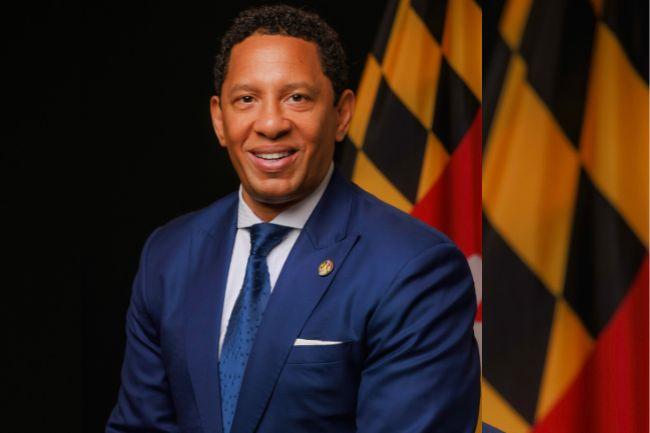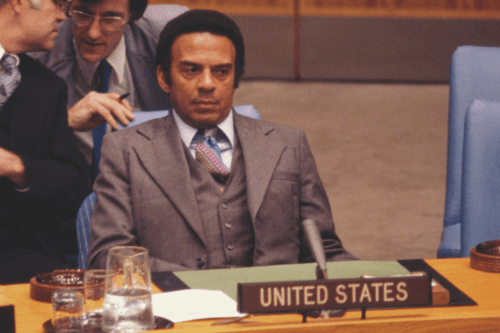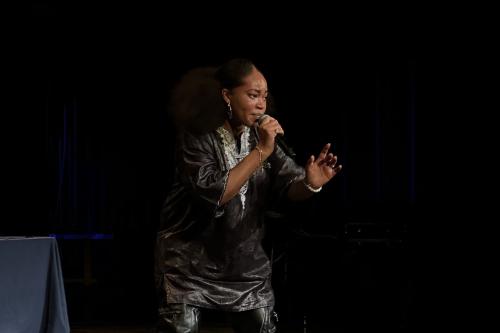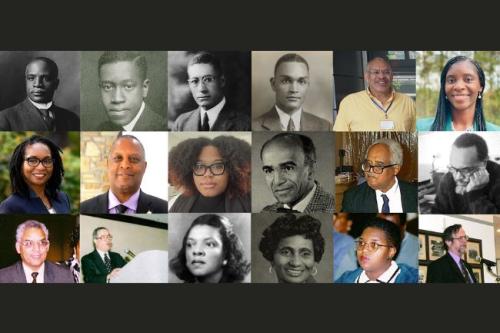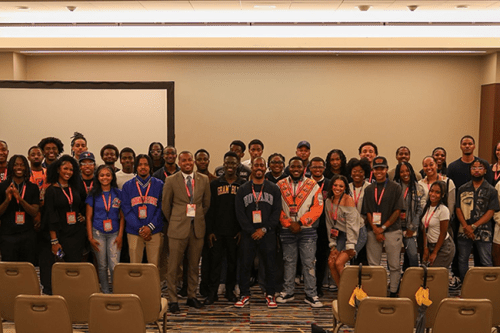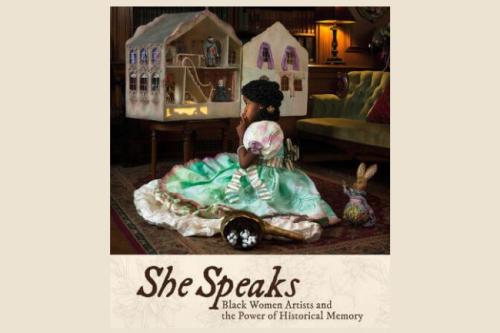“I take all my lived experiences from my time period at Howard University to my time period as a lawyer, as a criminal defense attorney, and as a prosecutor, into every room so that I can try to make laws better for us as a people.”
Baltimore State Attorney Ivan Bates (B.A. ’92) has served the city of Baltimore in this role since 2023, but his passion for serving people and his community began long before his swearing in. Bates credits his time as a student at Howard University with fostering his commitment to doing his part to make things better for Black people and the community —though his path to the university wasn’t a straight line from high school, his desire to serve initially taking him in another direction.
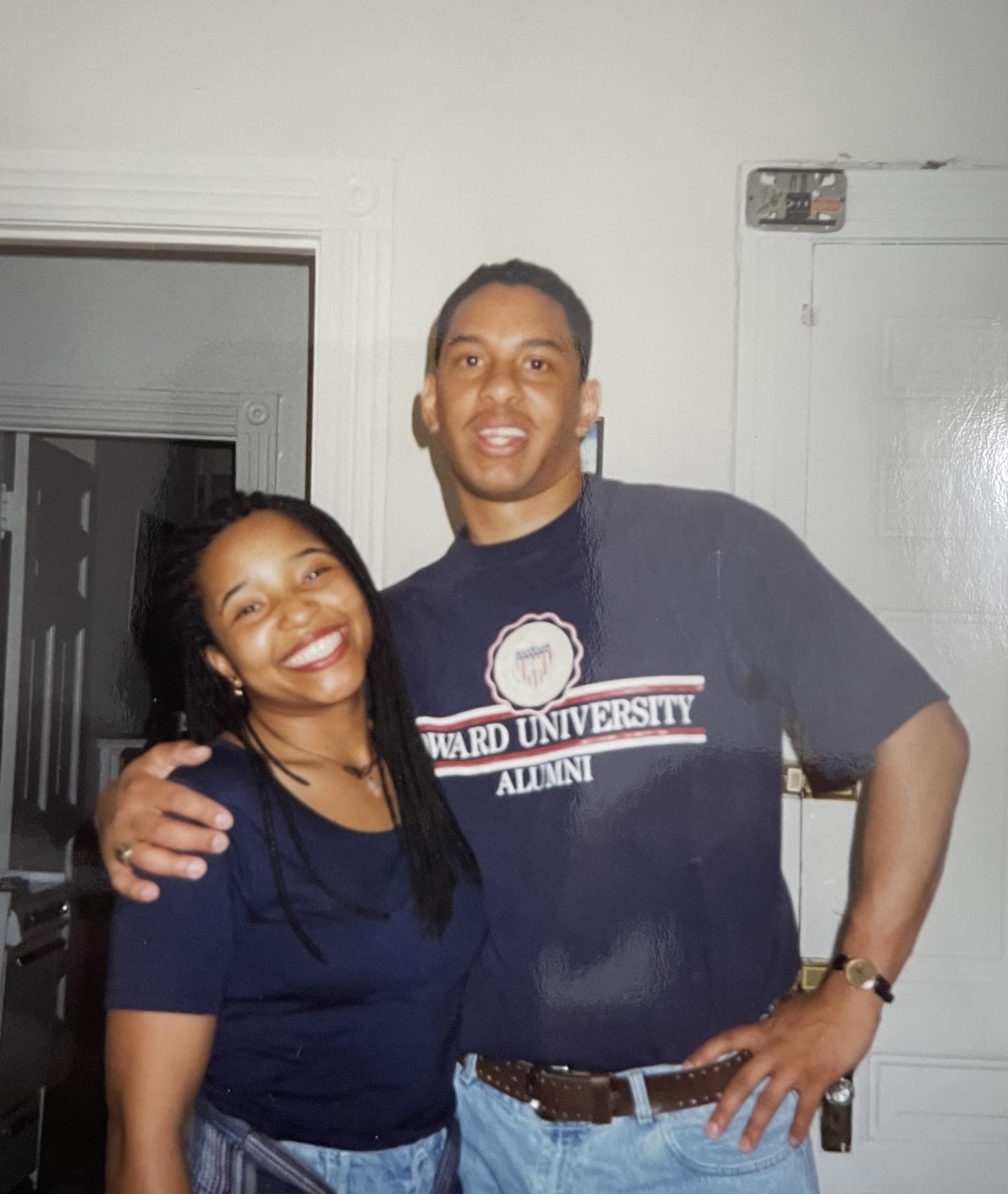
“I had a pretty interesting journey to Howard,” said Bates. Admitting that he wasn’t a particularly strong student while in high school, he decided to go into the United States Army. It was while stationed in Germany that the future bison learned more about the university and its students.
“One of my friends from high school went to Howard,” he began, noting that every time they’d talk on the phone, he’d hear women’s voices in the background. Having grown up in Hampton, Virginia, Bates and his friends were very familiar with HBCUs, especially Hampton and Norfolk State. “She would always say, ‘imagine Hampton, but a hundred percent better; it’s more women!’” laughed Bates.
Excited by the prospect of attending an HBCU with his friends, when he left the army, Bates called the decision to attend Howard easy. “That’s what brought me to Howard — having that lived experience and just talking to my friend.”
A Passion to Serve and The Power of HBCUs
Bates studied journalism and soon became active with student groups on campus, including student government. Discovering how rewarding and important public service can be, he eventually served as president of the Howard University Student Association (HUSA) during his senior year, having been inspired by the change he and his fellow classmates were able to bring forth. He notes the pedigree of leaders that Howard produced, including Kasim Reed (B.A. ‘91, JD ‘95, Honorary Doctor of Laws ’12, and Trustee Emeritus), April Silver (BA ’91), and Ras J. Baraka (B.A. ’91).
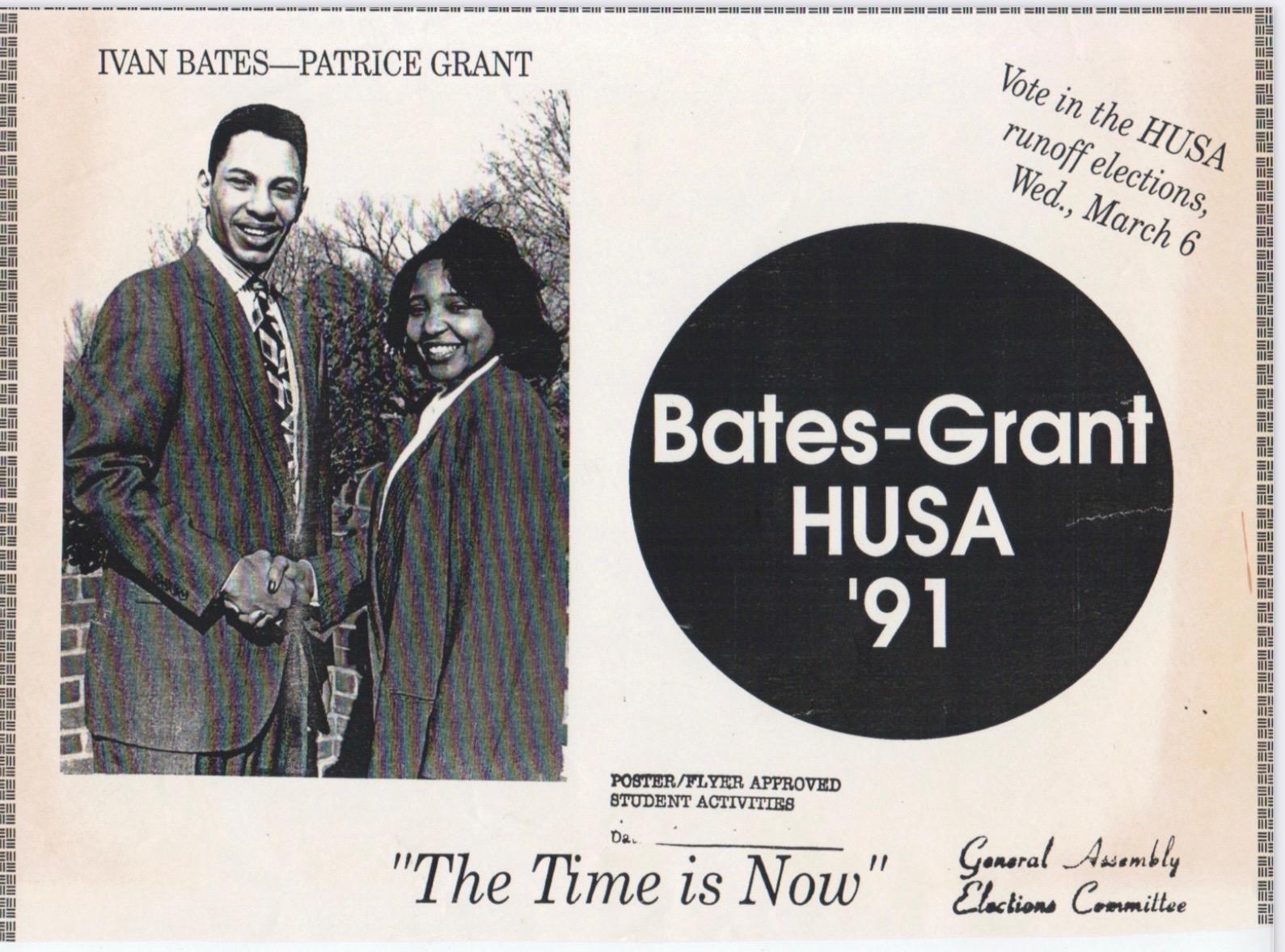
“I ran against the former mayor of Atlanta, Kasim Reed,” said Bates. “The president that I followed behind [was] April Silver, and the vice president was Ras J. Baraka, who’s now mayor of Newark.” Silver and Baraka led a student protest and takeover of the Administration Building in 1989, an event that earned international attention and led to changes in the university’s leadership.
“Being SSA president, you’re basically leading some of the greatest young Black lives and talent in the country, in the world,” said Bates before offering a little more insight into the activism he was a part of during that time in Howard’s history.
“When you think about what Howard has meant to so many people, back then in the late ‘80s, early ‘90s — you had so much going on in the country — and Howard University was a pivotal place for individuals to do things,” said Bates, remarking that students at the time were protesting Lee Atwater having a seat on the board of directors. The Republican National Committee chairman eventually resigned.
“We protested. We were very active in Black culture, what was going on in the Black community,” he said, going on to mention additional protests the students participated in, including supporting students at other HBCUs, including Kentucky State.
“What Howard teaches you, and especially student government, it teaches you about leadership, and that you have a duty and an obligation not just to the community at our university but to think about the larger diaspora, the Black community, and what it can do.”
Therefore, when asked what advice he’d offer to the current HUSA president and vice president, Bates stressed the significance of student leaders standing up for the student body, no matter the campus, and urged them to think about the legacy they’ll leave at a university where its legacy is paramount.
“To the student president and vice president, I’d say, first of all, use this as a learning experience and understand the importance of student government and representing the students,” he began, emphasizing that holding office isn’t an act of self-importance, but about producing tangible change for students. “Now’s the time to really work.” That said, Bates acknowledged the homecomings and fun aspects of college life that he also contributed to as a student leader.
“You’re going to have a great time but also understand what you can do to make the students’, your fellow students’, lives better and a little simpler.”
Howard Made
After receiving his bachelor’s degree from Howard, Bates went on to attend William & Mary Law School, earning his Juris Doctor in 1995. The future state attorney actually began his journey with the Baltimore State’s Attorney’s Office in 1996, working his way to the homicide division before leaving the office in 2002 and going into private practice.
“I’ve had a really interesting career, from a judicial law clerk to being a prosecutor. As a defense attorney, my former boss and I argued a case before the United States Supreme Court — very few attorneys ever get to go before the United States Supreme Court — to having my own law firm,” he said.
Bates would go on to run for Baltimore City State’s Attorney in 2018, a bid he didn’t win. However, in true bison spirit, he didn’t give up, winning his election a few short years later. Bates was sworn into office as Baltimore City State’s Attorney Jan. 3, 2023, and again, credits his Howard network for much of his success.
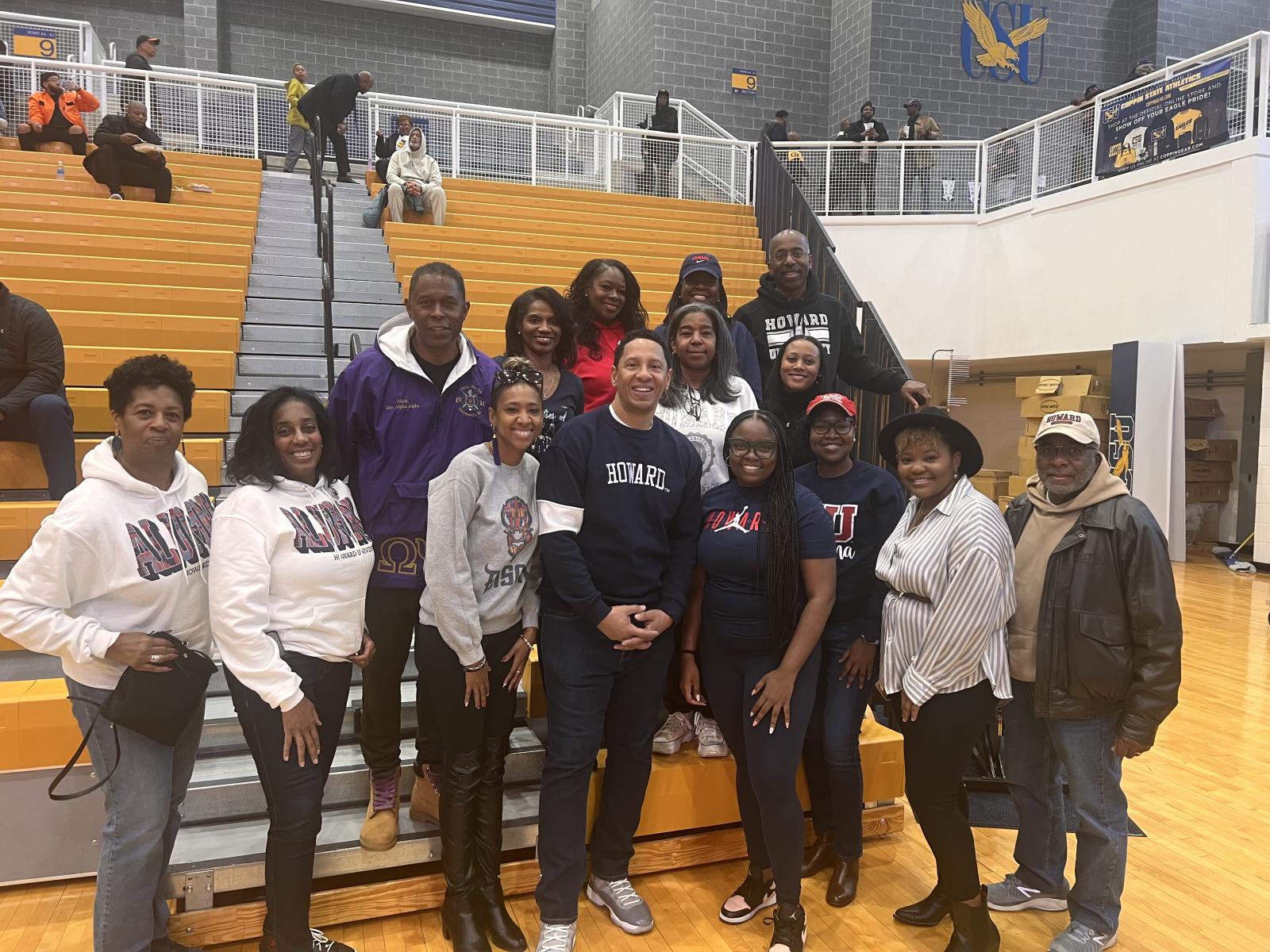
“Whenever you’re getting ready to try to run for political office, you’re going to reach out to your network, and your network is always going to start with Howard,” he began. “Those are the people who are going to lift you up and talk to you, going to tell you the truth.” He continued, “the thing that Howard University gave me, it gave me the ability to know that I could be a leader, to let me know that I had a role within that world [and] in the community to do something for Black people. That was something that was so, so important — it wasn’t just about me, it was about Black people.”
His time in student government also greatly prepared him to serve in the roles he’s held since, including his recent election as president of the Maryland State Attorneys’ Association.
“My background of running HUSA helped me understand some aspects of business, and that was important,” he said. On the other hand, as a criminal defense attorney, he’s continuing to serve the community and champion others, something he began in his previous student leadership roles, and continues today.
“If you’re student body president, you already have a head start in terms of leadership in this world, in this country. But what are you doing for those behind you? That’s why lifting as your climb is super important. I lived it when I was there, and I still try to live it now because you got yours, but what about the people behind you?”
HBCUs Matter
Bates also spoke on the importance of introducing the prospect of college to young Black men who may not have seen attending as a possibility.
“I remember when I became a brand-new prosecutor, I had a group of kids that I was mentoring, and I brought them to Howard University’s homecoming,” he said. The students would go on to attend college, one choosing Morgan State, which was alright with the attorney.
“The important aspect wasn’t just whether or not this young man went to Howard; the important aspect was that I opened their minds up to college.”
He challenges graduates of the university to be role models and to do all they can to support those just making their way in the world, especially during times of change and disruption.
“It’s not just leadership. Every person that graduates with a degree from Howard University, I definitely challenge them to go out and make sure you’re a role model.”
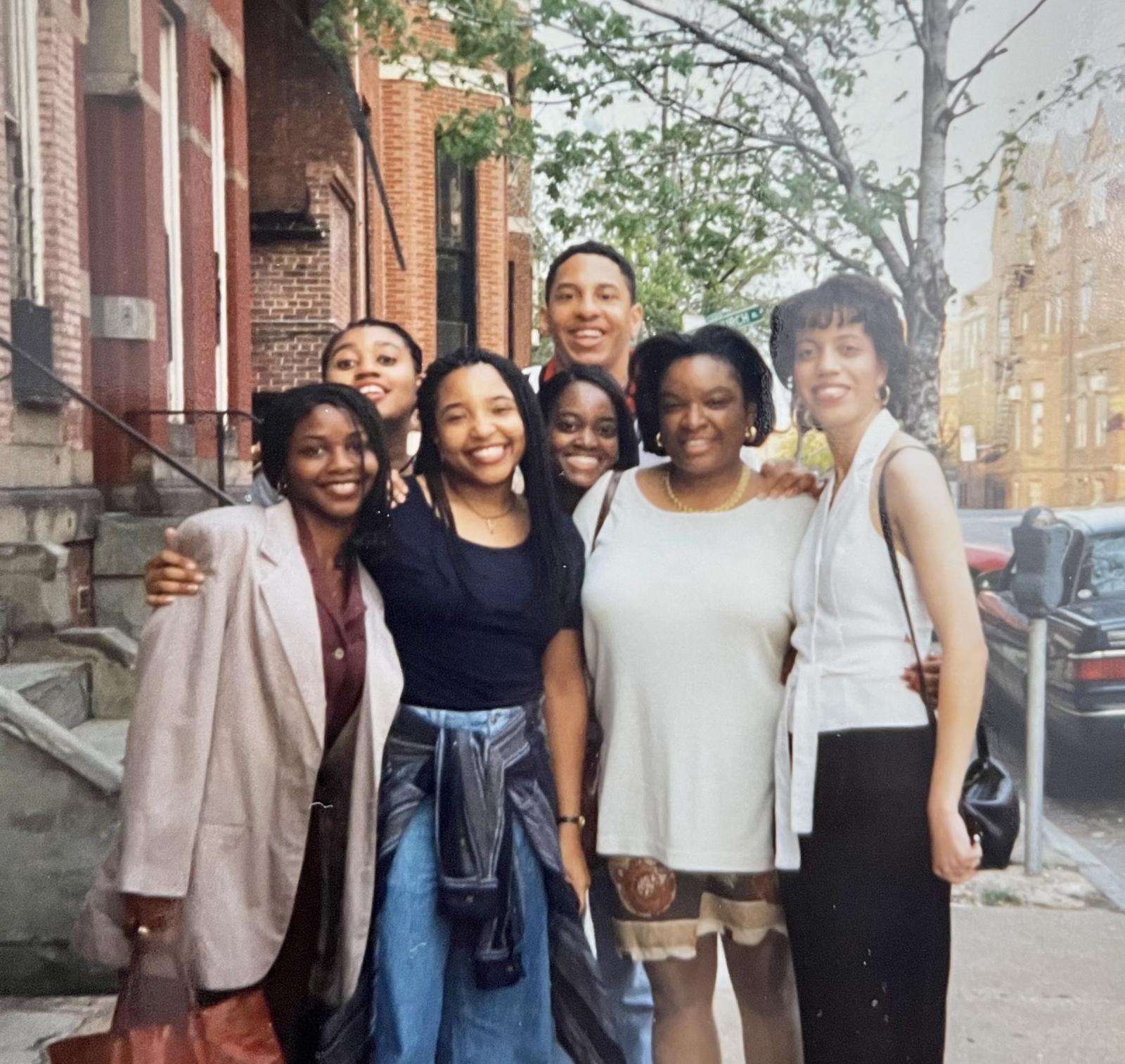
“It’s funny because some of what we were going through and fighting for in the ‘80s and early ‘90s is right here now, on the frontlines [of] fighting all over again,” he continued. “HBCUs were important then, and they’re probably even more important now. They tend to be the anchor for the Black community, where we know we can get a very good education.”
There’s power in understanding history, and the attorney believes in the power of education and its ability to open minds and doors.
“Our history is what makes us the people we are. And an HBCU is going to allow you to understand your history and do it in a safe environment that you can question,” he said. “One thing that I learned, is that people can take away many things from you, but they can never take away the education that you have at a HBCU.”
Another thing Bates has learned: There’s strength in community, and we all have an obligation to bring others along as we ascend.
“If you’re not focusing on the people as you lift and as you climb — then you’re basically going to be there by yourself. You can’t make change by yourself. You need everyone to buy in to make change.”


